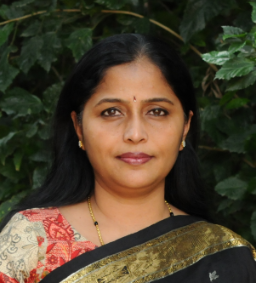
What does education in the new normal look like for forward-thinking Indian schools? Clearly, schools are creating a long-term vision, focusing on adaptability and always keeping their strategies learner-centric. The Ken42 team had the privilege to interview the dynamic principal of Deccan International School, Ms. Anuradha Anekal to understand and outline how one of the premier schools in the city is ensuring that children are able to make the most of their online education.
Here are some of her insights.
Ken42: How will the current state of COVID-19 affect learning outcomes? What are the measures your school has taken to ensure effectiveness in teaching?
Anuradha Anekal: To deal with change is not simple, especially if the change is heralded by an epidemic. There are numerous challenges in teaching students online and hence learning outcomes may be affected, albeit temporarily. Once teachers and students get proficient in utilising technology for teaching- learning outcomes will definitely improve.
At DIS, teacher training on the new platform and tools started at the end of March and is still an ongoing feature. We use a blended approach of online schooling, with both synchronous and asynchronous sessions. Study time is not very rigid and students can refer to the asynchronous resources at their convenience. Topics are selected and designed thoughtfully with emphasis on concept building, ensuring relevance to the child.
Ken42: How do you motivate and engage faculty and students in an online environment?
Anuradha Anekal: Classrooms in schools are very dynamic spaces. However, the online environment may make lessons monotonous over time. Therefore, it is extremely important that students and teachers stay highly motivated for effective learning to take place. Teachers are encouraged to share best practices and their online teaching experience in the school group regularly. Sharing of knowledge and the appreciation received is a great motivating factor for them.
Teachers use varied methods to motivate their students, from giving online appreciation awards to involving them in interactive activities like online quizzes, themed assemblies and so on. Teachers involve students in group activities to promote peer learning. Interacting with classmates brings in a sense of shared purpose which motivates students to meaningfully engage with the course material.
Ken42: What are the benefits and challenges related to online learning, and what has been your approach to both?
Anuradha Anekal: The amount of resources available on the internet and the ease of access to it is mind boggling. At the same time, the credibility of these resources is highly questionable. The content may not be suitable for classroom use. Teachers create, as well as share, curated content sourced from reliable websites. Students are also taught about cyber safety and how to conduct research on the internet.
Assessing student learning is another grey area. The natural instinct is to include all different aspects of the real classroom, into the virtual classroom. But that approach is not suitable, hence we encourage teachers to understand the relevance of the lesson/ concepts to the learner and design their teaching and assessment accordingly.
Ken42: Is online education as effective as face to face instruction?
Anuradha Anekal: Online education can be made as effective as face to face instruction, provided all fundamental principles of teaching-learning are followed. In spite of that, in some cases, online education may not be suitable. Very young children, children with learning difficulties or other health conditions may struggle with the online model. Screen time may be a concern, as may be cyber safety. Subjects which are very practical in nature like Art, PE etc. cannot be taught online effectively. Therefore, the effectiveness of online education also depends on the choice of topic/ subject and the age and health of the learner.
Ken42: What is your roadmap for a digital transformation campaign for your institution?
Anuradha Anekal: Digital transformation is happening faster than we imagined. Currently, due to the online model of teaching, the dependence on technology is very high. Over a short period of time, teachers have embraced technology effectively and so have students. Once school reopens, we will look at balancing technology with the human touch by engaging teacher-student in social and emotional learning activities. Transformation should be sustainable in the long run. Children need a strong human connection, not only for learning the syllabus, but also for their social and emotional learning. Hence, no transformation will happen overnight. Rather, it will be carefully thought out, planned and executed over a period of time.
Ms. Anekal points out some key realities that school needs to think about, which is the blended or hybrid system of education which integrates both in-person and online learning. In accordance with this, Ken42 enables schools like DIS to actualise their pioneering vision. We help in delivering better student outcomes and teaching experiences, as well as sharper insights for administrative staff. India’s first System for Education and Design Management (SEDM), Ken42 brings together technology, content and people to solve prevalent problems in education and contribute to worthy professionals of the future. The team is honoured to have had the opportunity to interact with Deccan International School.